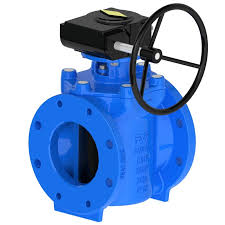When it comes to maritime safety, people often think about lifeboats, fire extinguishers, or navigation systems. However, one critical but less visible component plays a vital role in protecting lives and cargo onboard — marine valves.
Marine valves may seem like simple mechanical parts, but they are essential for controlling the flow of fluids that keep a ship’s systems running safely and reliably. Without properly functioning valves, a ship’s safety can be seriously compromised.
What Role Do Marine Valves Play in Safety?
Marine valves regulate the flow of liquids and gases such as seawater, fuel, lubricants, and firefighting agents throughout the vessel. Their primary safety functions include:
- Preventing leaks and spills that could lead to fires or environmental hazards
- Isolating damaged sections of piping to avoid system-wide failures
- Maintaining pressure balance in critical systems like ballast tanks to ensure ship stability
- Controlling the supply of firefighting fluids quickly and reliably in emergencies
How Valves Contribute to Fire Safety
Fire is one of the greatest dangers onboard any ship. Marine valves control the delivery of firefighting foam, water, or chemicals through complex pipe networks. Quick and precise valve operation can mean the difference between containing a fire rapidly or allowing it to spread.
Check valves and gate valves help prevent backflow, ensuring firefighting systems remain pressurized and ready for action at all times.
Protecting the Engine and Fuel Systems
Engines rely on a constant, controlled supply of cooling water and fuel. Valves regulate this flow to prevent overheating, fuel leaks, or pressure surges that could damage the engine or cause dangerous incidents.
Proper valve maintenance helps avoid unexpected shutdowns and contributes directly to crew safety.
Ballast and Stability Control
Maintaining a ship’s balance in varying load conditions depends heavily on the ballast system, which uses valves to control seawater intake and discharge. Malfunctioning valves in these systems could lead to instability, increasing the risk of capsizing, especially in rough seas.
Innovation and Reliability in Marine Valves
Modern marine valves are designed to withstand harsh marine environments with corrosion-resistant materials and advanced sealing technologies. Many are now equipped with sensors that provide real-time status updates to the ship’s control system, enabling early detection of leaks or failures.
This proactive approach enhances safety by allowing crew members to address potential issues before they escalate.
Conclusion
Marine valves are much more than mechanical components; they are the backbone of shipboard safety. From preventing fires to maintaining stability and protecting vital systems, valves ensure that a vessel operates safely even under the most challenging conditions.
Recognizing the importance of these unsung heroes means prioritizing high-quality valves and regular maintenance — investments that pay off in lives saved and incidents avoided.
